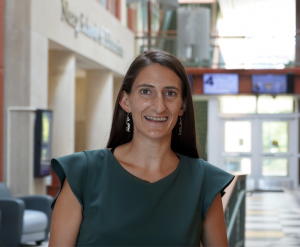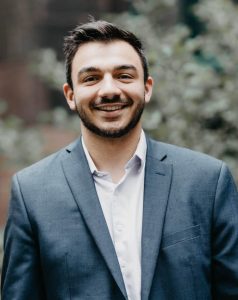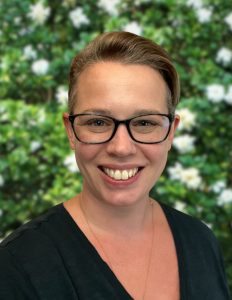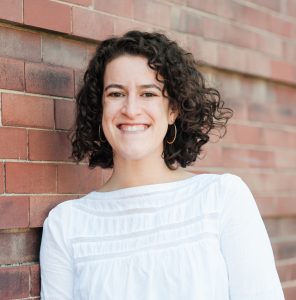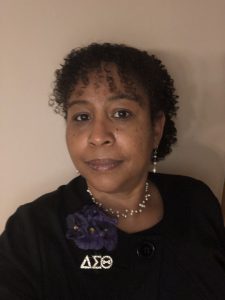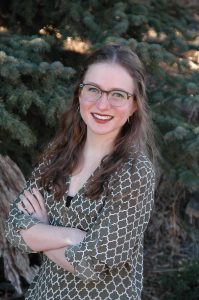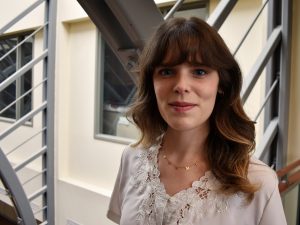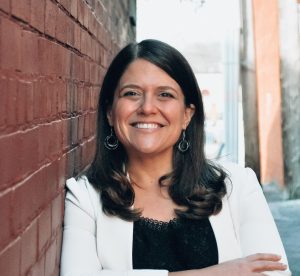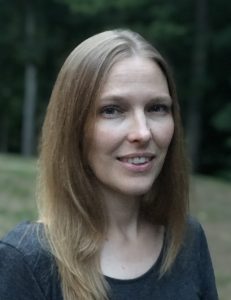Hannah Cooke is a doctoral student in Curriculum and Instruction with a focus on Science Education at the University of Connecticut. Her research interests include critical, antiracist science teaching that works to dismantle systems of oppression. Currently, she is a research assistant on the National Science Foundation (NSF) funded Discovery Research K-12 (DRK12) project COVID Connects Us: Nurturing Novice Teachers’ Justice Science Teaching Identities, which uses design-based research to develop justice-centered ambitious science teaching practices with in-service science teachers. In addition, she is working in the Education Leadership department exploring the implementation of the ethnic studies mandate in Connecticut high schools. Her former role as a high school science teacher and facilitator of the school’s Green Team led her to grapple with the role science educators play in advancing environmental justice. She holds a MA in Curriculum and Instruction and a BS in Biological Sciences from the University of Connecticut.
Kiah DeVona is a doctoral candidate in the Department of Educational Leadership at the University of Connecticut's Neag School of Education. Her research aims to inform policy and influence systemic change in outdoor experiential education and summer enrichment programming. Her current work focuses on the impact of gender stereotypes on women's experiences as camp leaders. She is also an active researcher on the Connecticut State Department of Education's (CSDE) Summer Enrichment Grant program evaluation team, sponsored by the Center for Connecticut Education Research Collaboration (CCERC), where she studies how Connecticut camps use CSDE grant funds to expand access to summer learning programs for youth across the state. Prior to her doctoral studies, Kiah taught elementary and middle school special education in the Connecticut public school system, and also worked as a leader for summer and school-year outdoor education programming. Kiah earned her BA and MA from the Neag School of Education at the University of Connecticut. Kiah can be reached at kiah.devona@uconn.edu.
Christopher Esposito is a full-time doctoral student in the Educational Psychology program with a concentration in Special Education at The University of Connecticut. He recently received his M.A. in Higher Education and Student Affairs from New York University and previously received his B.S. in Psychology from Stony Brook University. He worked in the field of college access and advising for three years, as well as the field of autism research for four years. Currently, he works as a graduate assistant on two projects related to college and career readiness, and his research interests include examining and improving the postsecondary outcomes for individuals with disabilities, particularly those with autism. He can be reached at christopher.m.esposito@uconn.edu.
Sarah Gilmore is a doctoral student in Educational Psychology in the Learning Sciences program at the University of Connecticut, and an awardee of the NSF -funded TRANScend fellowship in Educational Neuroscience. She is also pursuing a Graduate Certificate in Cognitive Science, and holds an MA Ed in Leadership and Management. Prior to beginning her doctorate, Sarah was a primary teacher for 15 years in international schools, going on to specialize in transdisciplinary technology integration and teacher coaching. She is a passionate supporter of classroom teachers and teaching, and holds feminist, humanist, and democratic perspectives. She has a broad base of research experience that has included qualitative, quantitative, and mixed methods, as well as lab-based research on science learning, including EEG, eye-tracking, and behavioral measures. Her research interests are in using technology to develop scalable, equitable, and evidence-informed pathways for teacher learning, and understanding how teachers' identities, beliefs, and lived experiences inform the ways in which they learn and teach. She is currently developing a statewide mixed methods study to describe current literacy teaching practices, and identify connections between teaching practices and individual and contextual factors.
Julia Oas is a doctoral student in the Research Methods, Measurement and Evaluation program at the University of Connecticut. She works to bridge gaps between research, school practice, and education policy, emphasizing the reformative change required to achieve equitable and empowering school experiences for all children. Julia’s research interests include research methods attuned to the needs of under-resourced school settings and causal inference within the field of education. In particular, she is motivated to study education policies and practices that improve the capacity of teachers to employ anti-racist, inclusive, and emotionally supportive pedagogies. Prior to her time at UConn, Julia taught for over five years in K-8 public schools as a classroom teacher and a math interventionist. She holds a B.A. in elementary education and sociology from the College of William and Mary, and an M.S.Ed. in education policy from the University of Pennsylvania.
Kenya Overton is a current doctoral candidate in the Neag School of Education at the University of Connecticut. Having earned her BA and MS in Mathematics from Westfield State College and the University of Mississippi respectively, and 6th Year in Ed Leadership from UConn, Kenya is passionate about ensuring that Black students have access to a high-quality mathematics education. Prior to pursuing her Ph.D. in Secondary Mathematics Education, Kenya devoted nearly 20 years in public education as an administrator, teacher, and mentor in schools across the country, including states like; Connecticut, Tennessee, New York, and Massachusetts. She has also taught mathematics at the Community College and University levels. Her research interests include secondary schools' policies and practices that promote success in mathematics for Black learners, developing equity-minded mathematics educators, and empowering Black learners of mathematics through Hip-Hop pedagogy.
Kelly Schlabach (she/they) is a current PhD student in the Learning, Leadership and Educational Policy program at the University of Connecticut and works as a Graduate Assistant in the Office for Diversity and Inclusion. Kelly received her Bachelor’s degree in Social Work at Ohio University in 2016 then went on to receive her Master of Arts in Higher Education at the University of Denver in 2018. During their time at the University of Denver they wrote a capstone entitled “Recommendations for Colorado Policy Makers Considering Education for Students who are Incarcerated.” Kelly’s research interests include deconstructing whiteness in educational systems through examining policies and structures that maintain whiteness, and more specifically, how educators and policies act as policing agents of whiteness.
Taylor Strickland is a doctoral student and graduate assistant in the Neag School of Education’s Learning, Leadership, and Education Policy Program. She holds a bachelor of science in Public Policy from The Georgia Institute of Technology. She previously taught 10th grade geometry in Atlanta, Georgia. Taylor uses sociological and organizational theories to frame her research. Her research interests include: teaching as a profession, impacts of policy on the work of teachers, understandings of teacher duty time, and the impacts of the intersection of these topics on teacher attrition and issues of equity in under-resourced schools. She can be reached at taylor.strickland@uconn.edu.
Amanda Sutter is a doctoral student in Research Methods, Measurement, and Evaluation (RMME), specializing in evaluation. Amanda has worked as a professional evaluator for 15 years and her interests are focused on methodologies that center equity. She is especially focused on research on evaluation to explore how these methods can be applied within evaluation practice to help improve implementation of educational, health, and human services programs and ultimately create more equitable outcomes for everyone.
Elizabeth Zagata is a doctoral candidate in Neag's special education program and a fellow with the National Center for Leadership in Intensive Intervention. She is interested in the intersection of research, policy, and practice, especially as it relates to improving outcomes for students with diverse learning needs. She has worked on state and federal policy issues as an intern for the Office of Special Education Programs (OSEP), WestEd, and the Center for Appropriate Dispute Resolution in Special Education (CADRE). Elizabeth completed her undergraduate degree in elementary and special education at SUNY Geneseo and her master’s degree in curriculum and teaching with a focus on giftedness at Columbia University’s Teachers College. Over her 15 year teaching career in both general and special education, Elizabeth taught in both large and small districts in urban, suburban, and rural settings, covering every grade from preschool to high school. She serves as adjunct faculty for courses on assessment and special education law, policy, and ethics at both UConn and Sacred Heart University.
